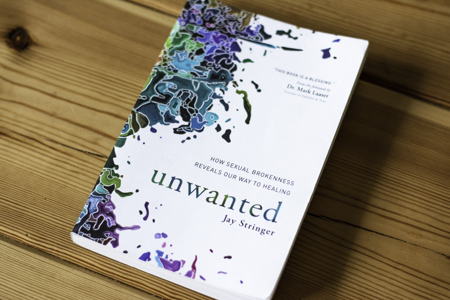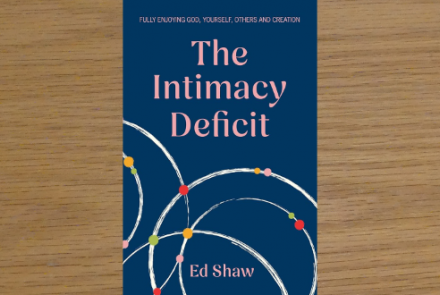Review: "Unwanted" by Jay Stringer
Jay Stringer is an American mental-health counsellor and ordained minister. The overall hypothesis of his book “Unwanted” is that behaviour-management approaches to restraining unwelcome sexual behaviours are ineffective. Instead, Stringer says we need to “understand our lust” (p. xix), seeing our present-day sexual fantasies and behaviours as road maps that can help us to understand our unresolved experiences from the past.
Outline of the book
In part one of the book, Stringer goes through five childhood drivers of unwanted sexual behaviours, seeking to explain “How did I get here?” with unwanted sexual behaviours. Readers may be surprised at how some of these drivers (eg rigid family rules) can lead to sexual behaviours. Stringer encourages a dispassionate review of our childhood environments, neither blaming parents nor making excuses for them. He explains how, for example, a disengaged parent can set up their child to find comfort in the disengaged anonymity of pornography, and so in adulthood continue to repeat the familiar pattern from childhood.
In part two of the book, Stringer explores “Why do I stay?” He asks why unwanted sexual behaviours remain a recurring pattern despite our efforts to break free. He describes the conditions (deprivation; dissociation; unconscious arousal; futility; and lust/anger) in our lives that create an environment that encourages unwanted sexual behaviours. He includes an interesting description of adulterous fantasy within a marriage, where the husband or wife is physically joined with his or her spouse but is retreating to someone else in sexual fantasy.
In the third part of the book, Stringer outlines a three part strategy for overcoming unwanted sexual behaviour through transformation in the areas of self, relationships, and community. In transforming oneself, Stringer focuses on tackling shame and instead filling life with satisfying activities and enjoying the healthy pleasures of life that God has provided. In transforming our primary relationships, he calls us to deepen our relating with others by exercising healthy balance in three areas. In transforming our involvement in community, he calls us to experience mutual support, practice empathy and find a bigger purpose for our lives.
Some limitations
In the final chapters on community, Stringer offers an interesting critique of the typical Christian approach to purity and accountability. He helpfully explains that a narrow focus on stopping behaviours can just set people up to fail. Instead, he advocates understanding of what drives unwanted sexual behaviours and a constructive focus on mutual participation and growth towards freedom and maturity. However, in his analysis, I felt he glosses over the seriousness of sin and that this reflected an overall weakness of the book: although it is sprinkled with Christian references, it is really more driven by mindfulness and wellbeing psychology, to the extent that the impact our sinful behaviours have on God was barely mentioned. Theologically speaking, I felt he errs on the side of cheap grace sometimes – for example, “You cannot become any purer in the future than you already are, even in the height of your acting out. Therefore, efforts to avoid lust… are null and void.” (p.213)
Another limitation of the book is the lack of acknowledgement that some will be committed to lives of celibacy. Despite this, the advice to find fulfilling activities, support and community will be very helpful to those committed to celibacy.
TFT members should also be aware that there is no focus on same-sex attractions or behaviours. Stringer’s research participants were 73% male and 92% heterosexual, and the book seems very much targeted towards straight males, particularly those struggling with pornography.
Verdict
Having read the book on my own for review purposes, without taking time to work through the material personally, I can see that I would have got more out of the book if I’d worked slowly through it with a Christian therapist or in a safe small group. The book covers a lot of ground and helpfully has questions for reflection at the end of each chapter. However, the book is probably too dense to be useful as a self-help guide. Most people will need considerable additional input from a professional counsellor or support group to understand the origins and sustaining factors in their sexual brokenness. Tied to the book, Stringer has created a $400 series of 18 video episodes for personal or group study and, if you can afford this, it might offer a better way to engage with the material in a more interactive and in-depth way. However, you might be better saving your money for one-to-one sessions with a well-qualified Christian therapist, who could help you work through the ideas in this book in a more personal way.
"Unwanted" by Jay Stringer
Navpress, 2018
£13.30 paperback
261 pages
This article was published in the Spring 2019 edition of the TFT magazine, Ascend.






